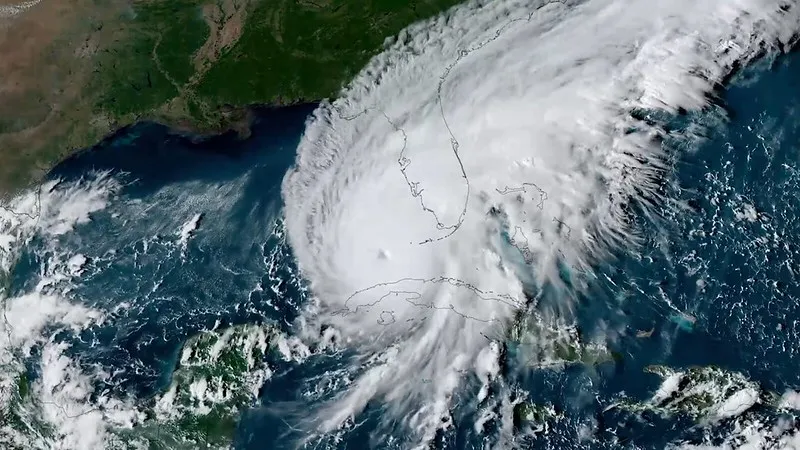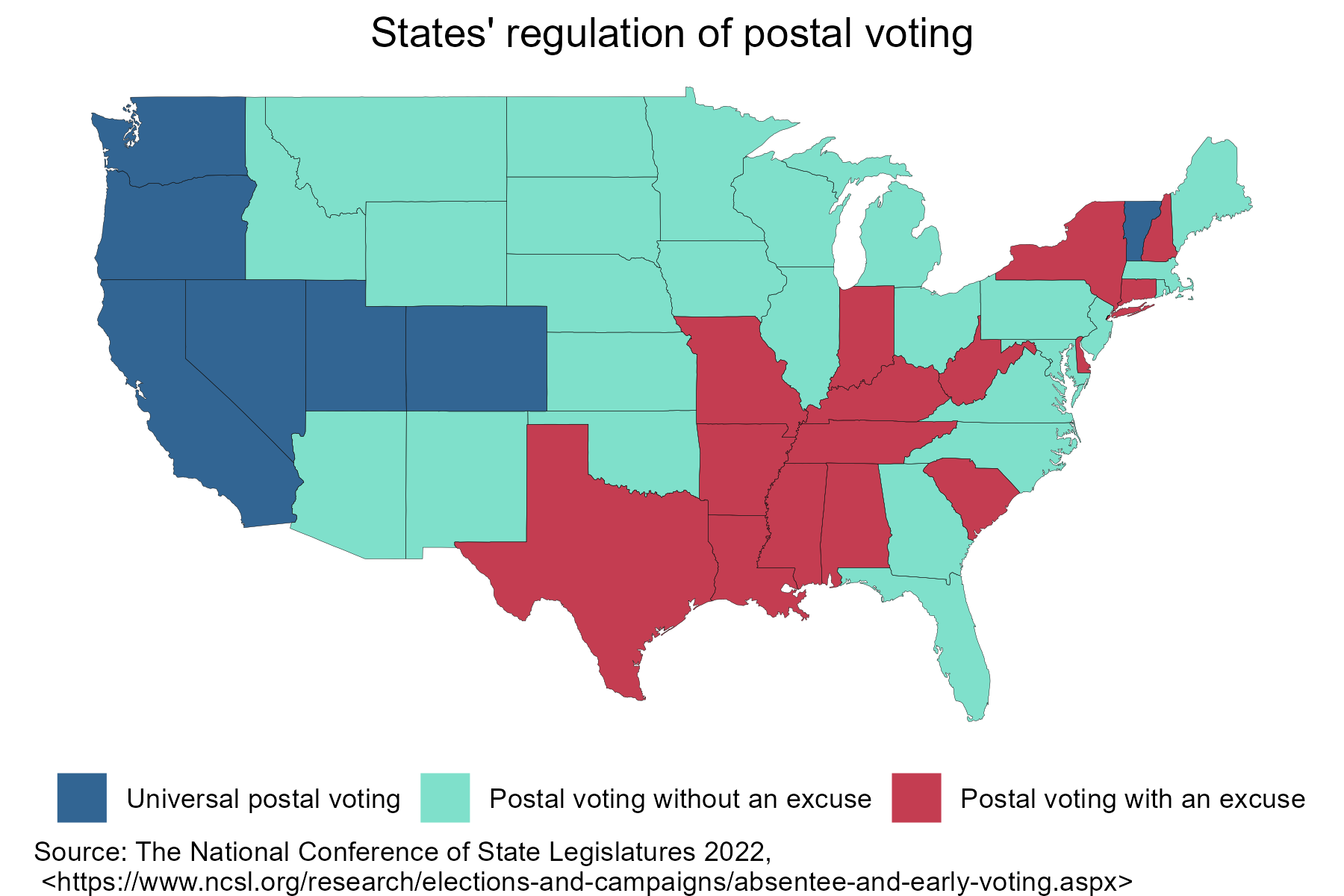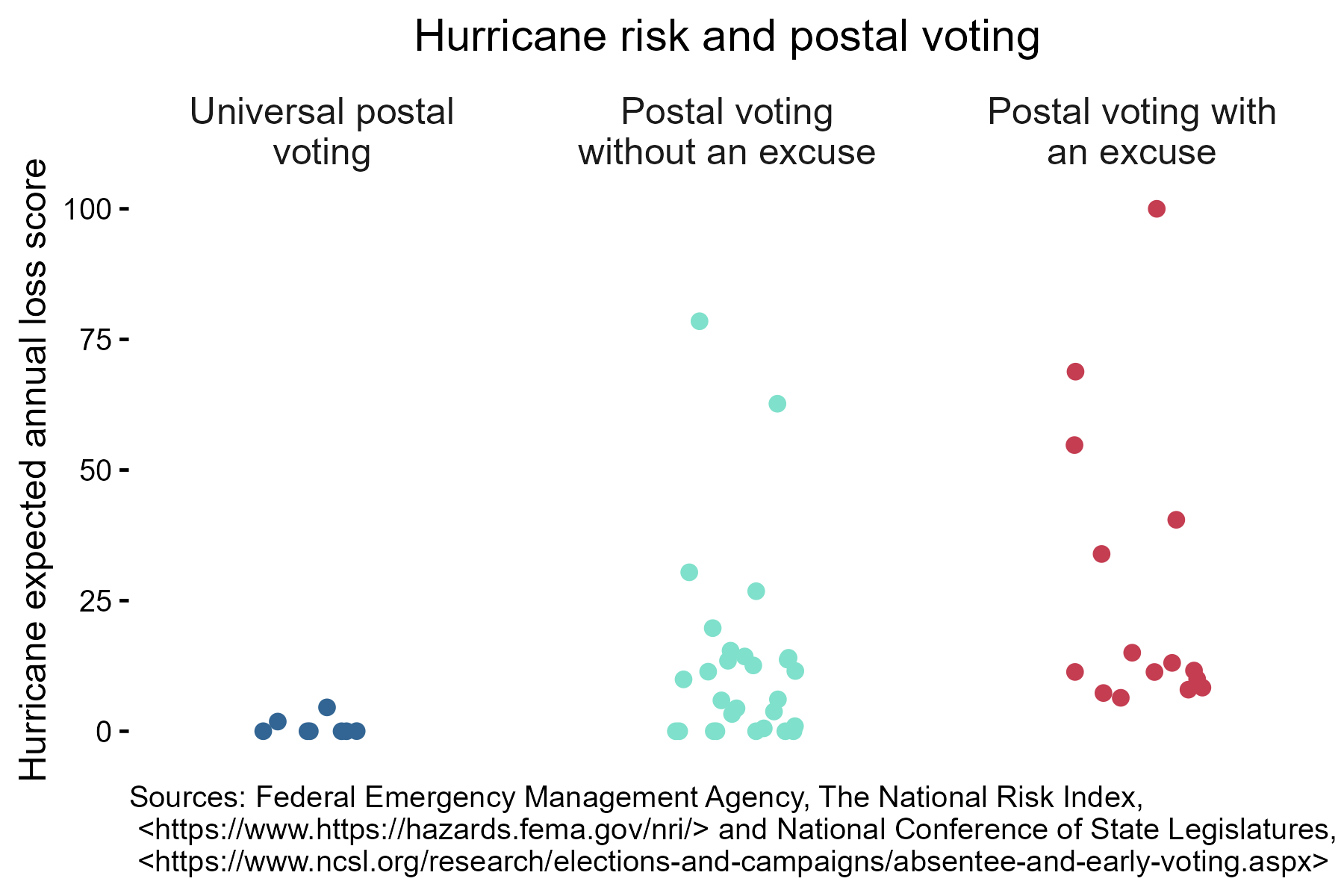How hurricanes threaten U.S. elections and why more flexible voting is needed

With less than a week to go to the United States’ midterm election, officials in Florida are working hard to ensure voter access for the thousands of Floridians impacted by Hurricane Ian’s wave of destruction in late September. Their efforts to overcome widespread voter displacement and polling station damage have been aided by a recent executive order from Florida Gov. Ron DeSantis, who has extended access to postal and early voting procedures in some of the worst affected areas. This has given voters in these areas the option of casting their ballot without having to make long or dangerous journeys and will reduce pressure on overstretched polling stations.
While the exclusion of a Democratic-leaning county from the order’s provisions has attracted accusations of partisan manipulation, it nevertheless serves as a salutary reminder of the importance of special voting arrangements (SVAs) (non-conventional forms of voting) to the administration of natural hazard-affected elections and, to this extent, is consistent with International IDEA’s recent research findings. In short, they provide electoral systems with the flexibility they need to adapt to the challenges that hurricanes pose.
The relevance of this lesson to the U.S. context is evident when one compares data on states’ hurricane risk with their permissiveness of postal voting. It reveals that many of the states most vulnerable to hurricanes are amongst the most restrictive of these voting methods.
With the hurricane threat growing in severity and no sign of federal elections being moved outside of the Atlantic hurricane season, it is not unreasonable to speculate that in the future some of these states will have to administer a hurricane-affected election. Unless they adopt a more open approach to SVAs, they risk widespread disenfranchisement and placing their already beleaguered electoral processes under extreme strain.
Postal voting regulation and hurricane vulnerability
Before looking at the data, it is important to clarify that under the U.S.’ decentralised system of electoral management each state has its own electoral legal framework, which means that there is huge variation in the way in which states regulate postal voting. Broadly speaking however, these regulatory approaches fall into one of three models of differing permissiveness: (1) postal voting with an excuse, where voters require a valid excuse to request a postal ballot; (2) postal voting without an excuse, where voters can request a postal ballot without an excuse; and (3) universal postal voting, where postal ballots are sent out to all registered voters.

Data visualisation credit: Emily Bloom

Data visualisation credit: Alexander Hudson

A more flexible future?
Electoral legal frameworks across the U.S. have tended to evolve in such a way that first incorporates and then broadens access to postal voting, a process that broadly speaking has been accelerated by the Covid-19 pandemic. Yet this evolution in some parts of the country, including in states most vulnerable to hurricanes, has been hindered and even reversed as false claims about voter fraud during the 2020 presidential election have fueled legislation restricting postal voting. This could seriously impair these states’ ability to manage a hurricane-affected election.
One way of overcoming concerns about postal voting would be for states to follow Canada’s lead and enact exceptional electoral regulations that apply only during natural disasters. Such regulations could empower election managers to implement universal postal voting in such circumstances. However, in developing flexible electoral frameworks that enable them to effectively meet the challenges posed by natural hazards, states should look beyond postal and early voting and consider the full range of SVAs being implemented around the world.




